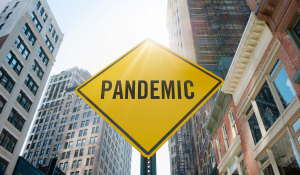 Case workers in the US have been refining their role in the fight against the COVID-19 pandemic by taking inspiration from the pivotal role their Chinese colleagues played in controlling the rate of infection in Wuhan.
Case workers in the US have been refining their role in the fight against the COVID-19 pandemic by taking inspiration from the pivotal role their Chinese colleagues played in controlling the rate of infection in Wuhan.
China
Given the success China had in limiting new COVID-19 infections in Wuhan, U.S. social workers found it beneficial to review their Chinese colleagues’ public health response to the crisis.
- In Wuhan, social workers used telehealth interventions to provide health education, online screening, volunteer coordination, crisis intervention, and emotional support to the community.
- Chinese social workers assessed the needs of each household using mobile apps, coordinated volunteer teams to help purchase necessities at local grocery stores and pharmacies, and offered home delivery to minimize human contact.
- If anyone reported COVID-19 symptoms or had other health and mental health concerns, a social worker would call the person to provide immediate interventions or referrals.
- They set up online support groups for pregnant women and women taking care of newborn babies.
- They established a support system for children with disabilities who were quarantined from their parents.
- Social workers connected patients who were quarantined at home with free medical supplies such as pulse oximeters and oxygen generators.
- They created and distributed a palliative care handbook and held virtual funerals for affected patients and families.
The U.S. Social Worker Response
U.S. social workers are in a similar position to promote disease prevention efforts (including disseminating accurate information from trusted sources), and to help address anxiety and other concerns that are arising as a result of this public health crisis.
- They are capable of providing solutions for issues related to SDOH, such as lack of financial resources or limited access to food, with a special focus on vulnerable populations.
- Many clinicians are increasing the parameters of their practice to directly address these feelings of grief, anxiety, and trauma through teletherapy. (For the duration of the COVID-19 Public Health Emergency, Medicare will make payment for professional services furnished to beneficiaries in all areas of the country in all settings.)
- Social workers in hospital-based settings or community organizations dealing directly with COVID-19 patients are uniquely qualified to calm distressed patients, support caregivers, and discuss end-of-life care with patients and families.
- Social workers are promoting individual well-being among health care professionals who may be experiencing fear, guilt, or exhaustion.
- Social workers are also helping by facilitating effective communication between health care professionals and clients to reduce mutual frustrations or anxieties.
- With the use of technology, social workers are helping people who need routine care by keeping vulnerable beneficiaries, and beneficiaries with mild symptoms, in their homes while maintaining access to the care they need. (Medicare will make payment for Medicare telehealth services furnished to beneficiaries in any healthcare facility and in their home.)
- Through the use of a wide variety of communication technology, social workers are limiting community spread of the virus by limiting exposure among patients and staff members.
- And social workers are helping doctors find patients in need, give patients access to the technology involved, and teach them how to use it while sheltering at home. (Medicare requires that the provider use an interactive audio and video telecommunications system, including commonly used services like FaceTime and Skype that permits real-time communication between the distant site and the patient at home.
Finally
Social workers are navigating the uncharted territory of a global pandemic and assisting with individual and community experiences of grief, anxiety, trauma, and confusion. Social workers understand where systems are breaking down, what community resources are becoming available in a rapidly changing environment, and how policies can be changed or modified to improve public health and safety.

